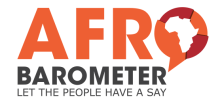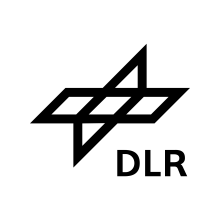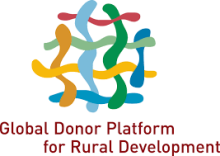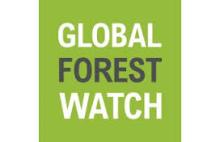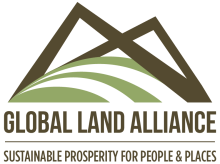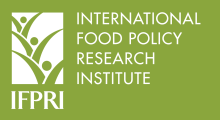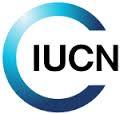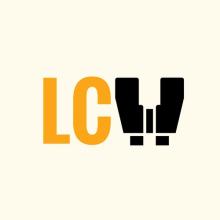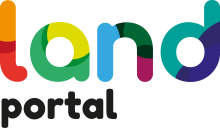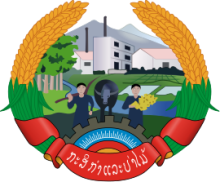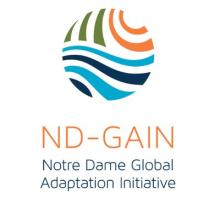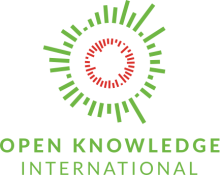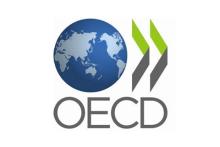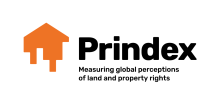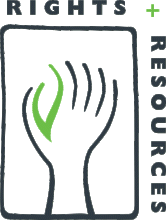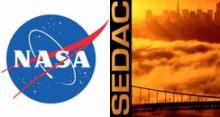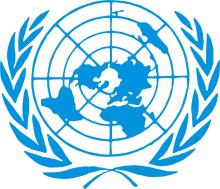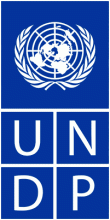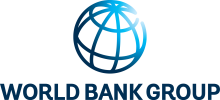O nosso armazém de dados de acesso livre - que abrange todos os aspectos relacionados com a terra - é conformado por fontes institucionais de confiança de todo o mundo. Clique nos links abaixo para descobrir mais sobre as pessoas e organizações por trás dos grandes dados.
Afrobarometer
Afrobarometer is a pan-African, non-partisan research network that conducts public attitude surveys on democracy, governance, economic conditions, and related issues in more than 35 countries in Africa. Through our findings, ordinary citizens can have a voice in policy-making processes that affect their lives.
It is the world’s leading research project on issues that affect ordinary African men and women. It collects and publishes high-quality, reliable statistical data on Africa which is freely available to the public.
It is carried out through a partnership of the Ghana Center for Democratic Development (CDD Ghana), Institute for Justice and Reconciliation (IJR) in South Africa, Institute for Empirical Research in Political Economy (IREEP) of the African School of Economics at Abomey Calavi in Benin, Institute for Development Studies (IDS) at the University of Nairobi, the Institute for Democracy, Citizenship and Public Policy in Africa at the University of Cape Town and the Department of Political Science at Michigan State University.
Digital Observatory for Protected Areas
DOPA is a biodiversity information system developed by the JRC that functions as a tool for assessing, monitoring and forecasting biodiversity status and trends. It is made up of a set of interoperable web services developed by the JRC, using data from international organisations such as the World Conservation Monitoring Centre of the United Nations Environment Programme (UNEP), the International Union for the Conservation of Nature (IUCN), and the Global Biodiversity Information Facility, among others. DOPA has been designed to assess the state of and pressures on protected areas on a global scale, and to prioritise protected areas according to their biodiversity and the pressures to which they are exposed. DOPA supports decision making and fund allocation processes, and has been recognised by the Convention on Biological Diversity (UNEP/CBD/COP/11/L.9, SCBD/SAM/DC/SBG/LJ/84384).
The Digital Observatory for Protected Areas (DOPA) is a set of web services and applications that can be used primarily to assess, monitor, report and possibly forecast the state of and the pressure on protected areas at multiple scales.
Earth Observation Center
EOC conducts research in the field of remote sensing. We seek answers to urgent social questions relating to the environment and climate, mobility and planning, prevention and management of natural catastrophes, and civil security. We operate satellite data receiving stations in Germany and abroad. In the German Satellite Data Archive (D-SDA) we safeguard data and information products long-term and make them available to users. EOC comprises the German Remote Sensing Data Center (DFD) and the Remote Sensing Technology Institute (IMF), at work in Oberpfaffenhofen, Neustrelitz, Berlin-Adlershof and the Maritime Safety Research Department in Bremen.
Food and Agriculture Organization of the United Nations (FAO)
The Food and Agriculture Organization of the United Nations leads international efforts to defeat hunger. Serving both developed and developing countries, FAO acts as a neutral forum where all nations meet as equals to negotiate agreements and debate policy. FAO is also a source of knowledge and information. We help developing countries and countries in transition modernize and improve agriculture, forestry and fisheries practices and ensure good nutrition for all. Since our founding in 1945, we have focused special attention on developing rural areas, home to 70 percent of the world's poor and hungry people.
Global Donor Platform for Rural Development
The Global Donor Platform for Rural Development is a network of 38 bilateral and multilateral donors, international financing institutions, intergovernmental organisations and development agencies.
Members share a common vision that agriculture and rural development is central to poverty reduction, and a conviction that sustainable and efficient development requires a coordinated global approach.
Following years of relative decline in public investment in the sector, the Platform was created in 2003 to increase and improve the quality of development assistance in agriculture, rural development and food security.
// Agriculture is the key to poverty reduction
Agriculture, rural development, and food security provide the best opportunity for donors and partner country governments to leverage their efforts in the fight against poverty.
However, the potential of agriculture, rural development and food security to reduce poverty is poorly understood and underestimated.
Cutting-edge knowledge of these issues is often scattered among organisations, leading to competition, duplication of efforts, and delays in the uptake of best practices.
// Addressing aid effectiveness
Therefore the Platform promotes the principles of the Paris Declaration on Aid Effectiveness, the Accra Agenda for Action for sustainable outcomes on the ground, and the Busan Global Partnership for Effective Development Cooperation.
Increasing aid to agriculture and rural development is not enough. Donors must work together to maximise development impact.
// Adding value
The Platform adds value to its members’ efforts by facilitating the exchange of their development know-how, which consolidates into a robust knowledge base for joint advocacy work.
Working with the Platform, members are searching for new ways to improve the impact of aid in agriculture and rural development.
- An increased share of official development assistance going towards rural development
- Measurable progress in the implementation of aid effectiveness principles
- Greater use of programme-based and sector-wide approaches
- More sustainable support to ARD by member agencies
// Vision
The Platform endorses and works towards the common objectives of its member institutions to support the reduction of poverty in developing countries and enhance sustainable economic growth in rural areas.
Its vision is to be a collective, recognised and influential voice, adding value to and reinforcing the goals of aid effectiveness in the agricultural and rural development strategies and actions of member organisations in support of partner countries.
// Evaluation
Between August and October 2014, the Global Donor Platform for Rural Development underwent an Evaluation. The evaluators interviewed across board focal points (FPs) of member organisations, partner institutions, staff of the secretariat and key agricultural and rural development experts from different organisations involved in the Platform initiatives. KIT reviewed Platform documentation of the past 10 years, online resources and services to complete the assessment.
According to the report, the change in overall global development objectives of the Post-2015 agenda and its sustainable development goals (SDG) will only reiterate the relevance of the Platform’s work in coordinating donor activities. Agriculture and rural development are incorporated in many of the SDGs. The targeted development of appropriate policies and innovative strategies will depend on increased, cross-sectoral cooperation which the Platform stands for. The achievement of the Platform’s objectives of advocacy, knowledge sharing and network facilitation functions remains to be a crucial contribution to agriculture and rural development.
Global Forest Watch
Global Forest Watch originally began in 1997 as an initiative to establish a global forest monitoring network, convened by the World Resources Institute and partners. It began as part of WRI’s Forest Frontiers Initiative. The original GFW achieved many outcomes toward the conservation of large intact forest areas.
WRI has continued the work that Global Forest Watch started, working to improve forest information by merging the latest technology with on-the-ground partnerships. In the Congo Basin countries, WRI has published Forest Atlases that help decision makers achieve sustainable management of forest resources through strengthened land-use planning and monitoring. These are now available for Cameroon, Central African Republic, Republic of the Congo, Democratic Republic of the Congo, Equatorial Guinea, and Gabon. The Forest and Landscapes in Indonesia project works to support government and civil society actions for effective and equitable land use in that country. This work now continues as part of WRI’s work on forests and is integrated with Global Forest Watch. In addition to the countries listed above, GFW published state of the forest reports for Canada, Chile, Russia, and Venezuela and related policy reports for Guyana and Suriname.
The GFW network also developed the methods for mapping Intact Forest Landscapes by piloting this method in Russia and Canada and then expanding it to the global level for the year 2000. Monitoring of these areas continues, with an update for the year 2013 published recently.
Leveraging the advent of new technologies and increased global connectivity, work on the next generation Global Forest Watch began in 2011 with an expanded group of partners and powerful new monitoring capabilities. Help be part of GFW’s future by participating in and contributing to the GFW system.
Global Land Alliance
The mission of Global Land Alliance is to enable the prosperity of people and places by advancing learning and practice to achieve land tenure security and the efficient, inclusive and sustainable use of land and natural resources.
We aim to accelerate quality development by resolving land issues with new paradigms of participation and accountability. We are a think-and-do tank focused on resolving land issues to address four critical development challenges:
- Food security and the challenge of sustainable food systems.
- Environment and the challenge of sustainable ecosystems.
- Urbanization and the challenge of sustainable cities.
- Conflict and the challenge of sustainable peace.
Global Land Alliance takes the traditional think tank model a step forward, not only producing new understanding and recommendations based on on-the-ground perspectives of citizens, community leaders and businesses, but also channeling those learnings toward practical implementation at scale. By scaling and speeding up resolution of land issues, we can scale up and speed up improved results in the big issues of our time: urbanization, food security, environmental sustainability and peace.
Global Land Alliance is committed to finding solutions to the complex development challenges of cities, rural landscapes and forests through the power of allying local, national and international resources in innovative ways. We seek to harness the values inherent in land, place and natural resources to drive socially inclusive and ecologically-grounded development. We act as a catalyst for change by mobilizing local action, managing knowledge, driving accountability, and developing long-term capacities. We seek to be a positive disrupter of status quo situations that keep people in poverty and insecurity, misuse resources and inhibit local growth.
Intact Forest Landscapes
An alliance of research and non-governmental ecological organizations known as the IFL Mapping Team is constantly improving and updating the Intact Forest Landscapes dataset.
International Food Policy Research Institute
About IFPRI
The International Food Policy Research Institute (IFPRI) provides research-based policy solutions to sustainably reduce poverty and end hunger and malnutrition in developing countries. Established in 1975, IFPRI currently has more than 500 employees working in over 50 countries. It is a research center of theCGIAR Consortium, a worldwide partnership engaged in agricultural research for development.
Vision and Mission
IFPRI’s vision is a world free of hunger and malnutrition. Its mission is to provide research-based policy solutions that sustainably reduce poverty and end hunger and malnutrition.
What We Do
Research at IFPRI focuses on six strategic areas:
- Ensuring Sustainable Food Production: IFPRI’s research analyzes options for policies, institutions, innovations, and technologies that can advance sustainable food production in a context of resource scarcity, threats to biodiversity, and climate change. READ MORE
- Promoting Healthy Food Systems: IFPRI examines how to improve diet quality and nutrition for the poor, focusing particularly on women and children, and works to create synergies among the three vital components of the food system: agriculture, health, and nutrition. READ MORE
- Improving Markets and Trade: IFPRI’s research focuses on strengthening markets and correcting market failures to enhance the benefits from market participation for small-scale farmers. READ MORE
- Transforming Agriculture: The aim of IFPRI’s research in this area is to improve development strategies to ensure broad-based rural growth and to accelerate the transformation from low-income, rural, agriculture-based economies to high-income, more urbanized, and industrial service-based ones. READ MORE
- Building Resilience: IFPRI’s research explores the causes and impacts of environmental, political, and economic shocks that can affect food security, nutrition, health, and well-being and evaluates interventions designed to enhance resilience at various levels. READ MORE
- Strengthening Institutions and Governance: IFPRI’s research on institutions centers on collective action in management of natural resources and farmer organizations. Its governance-focused research examines the political economy of agricultural policymaking, the degree of state capacity and political will required for achieving economic transformation, and the impacts of different governance arrangements.
Research on gender cuts across all six areas, because understanding the relationships between women and men can illuminate the pathway to sustainable and inclusive economic development.
IFPRI also leads two CGIAR Research Programs (CRPs): Policies, Institutions, and Markets (PIM) andAgriculture for Nutrition and Health (A4NH).
Beyond research, IFPRI’s work includes partnerships, communications, and capacity strengthening. The Institute collaborates with development implementers, public institutions, the private sector, farmers’ organizations, and other partners around the world.
International Union for Conservation of Nature
IUCN is a membership Union uniquely composed of both government and civil society organisations. It provides public, private and non-governmental organisations with the knowledge and tools that enable human progress, economic development and nature conservation to take place together.
Created in 1948, IUCN is now the world’s largest and most diverse environmental network, harnessing the knowledge, resources and reach of more than 1,300 Member organisations and some 16,000 experts. It is a leading provider of conservation data, assessments and analysis. Its broad membership enables IUCN to fill the role of incubator and trusted repository of best practices, tools and international standards.
IUCN provides a neutral space in which diverse stakeholders including governments, NGOs, scientists, businesses, local communities, indigenous peoples organisations and others can work together to forge and implement solutions to environmental challenges and achieve sustainable development.
Working with many partners and supporters, IUCN implements a large and diverse portfolio of conservation projects worldwide. Combining the latest science with the traditional knowledge of local communities, these projects work to reverse habitat loss, restore ecosystems and improve people’s well-being.
Land Conflict Watch
Land Conflict Watch is a research-based data journalism project that maps, collects, and analyses ongoing land conflicts in India. It not only presents a macro picture at the national level but also zooms in to give details of each conflict at the micro level.
Land Conflict Watch is a team of independent researchers and journalists, spread across India, who combine academic rigour with journalistic approach to collect data that answers questions about conflicts and their impact on the environment, industrial investments and human rights.
The project is supported by a fellowship grant from Rights and Resources Initiative. Tata Institute of Social Sciences in Mumbai has provided academic inputs.
Land Matrix
The Land Matrix is an independent global land monitoring initiative that promotes transparency and accountability in decisions over large-scale land acquisitions (LSLAs) in low- and middle-income countries across the world. The initiative actively collects information about land deals from publicly available sources (such as media, internet, research, contracts, and government and company websites), while partner organisations contribute through their own field research. A network of reporters (including civil society organisations, researchers, and practitioners) validate and collect additional information as well. The Land Matrix’s online open access platform strives to stimulate inclusive debate on the trends and impacts of such acquisitions, facilitate wide participation in collecting and sharing information about these deals, and contribute to the growing movement towards open data. In this way, the initiative aims to support greater public involvement in critical decisions that affect the lives of land-users and strengthen the positions of more vulnerable stakeholders in the political and administrative processes that govern access to land.
For more information about land deals and how data is captured, analysed, and used by the Land Matrix, please visit www.landmatrix.org
Land Portal Foundation
The Land Portal is a Foundation registered in the Netherlands in 2014.
The vision of the Portal is to improve land governance to benefit those with the most insecure land rights and the greatest vulnerability to landlessness through information and knowledge sharing.
The goal of the Portal is to become the leading online destination for information, resources, innovations and networking on land issues. Through this it will support more inclusive and informed debate and action on land governance and will increase the adoption and up-scaling of best practices and emerging innovations on land tenure.
Read more about us and join the Land Portal now!
LandMark
LandMark is a dynamic, online mapping platform that provides critical information on the collective land and natural resource rights of Indigenous Peoples and local communities around the world. The global platform supports local livelihoods and well-being by increasing the visibility of indigenous and community lands and presenting crucial information on the state of land rights.
Community level data include the boundaries of lands held or used by Indigenous Peoples and communities, including lands that are formally recognized by government and those that are held under customary tenure arrangements. Clicking on the boundaries in the interactive map provides additional information about the lands.
National level data provide two categories of information for a country: 1) the amount of land held or used by Indigenous Peoples and communities as a percentage of the country’s total land area, and 2) a snapshot of the legal security of indigenous and community lands based on a review of national land and resource rights laws for each country.
Please, visit https://www.landmarkmap.org/ fore more information.
Lao Ministry of Agriculture and Forestry
The Ministry of Agriculture and Forestry of Laos (ກະຊວງ ກະສິກຳ ແລະ ປ່າໄມ້ in Lao language) is a ministry of the government of the Lao People's Democratic Republic (Lao PDR). The minister of Agriculture and Forestry is H.E. Sitaheng Rasphone.
Natural Resource Governance Institute
The Natural Resource Governance Institute (NRGI) is an independent nonprofit organisation dedicated to improving countries' governance over their natural resources (in particular oil, gas and minerals) to promote sustainable and inclusive development.
The Natural Resource Governance Institute was established through the merger of the Revenue Watch Institute and the Natural Resource Charter in 2013.
Nicholas K. Tagliarino
The legal data collected for Nicholas Tagliarino's dissertation and posted on Land Book examines whether national expropriation, compensation, and resettlement laws in developing countries are adopting international standards designed to secure tenure rights and ensure responsible land governance. The analysis conducted for this dataset is based on Section 16 of the UN Voluntary Guidelines on the Responsible Governance of Tenure, which establishes standards on expropriation, compensation, and resettlement. The data published on Land Portal will be analyzed in a series of forthcoming papers, which together make up his dissertation. For more information on this research project, see the World Resources Institute working paper: Encroaching on Land and Livelihoods: How National Laws Measure Up Against International Standards. Nicholas joined the Land Portal in September 2016 as a Research Analyst. Currently, he is also pursuing a PhD at the University of Groningen Faculty of Law (the Netherlands).
Notre Dame Global Adaptation Initiative
There’s a growing, global movement to make human communities and ecosystems more resilient to climate extreme impacts. For the Notre Dame Global Adaptation Initiative (ND-GAIN), it’s a movement rooted in the power of data, grounded in science-based evidence and driven by a mission of “Science Serving Society.”
A program within the Notre Dame Environmental Change Initiative, ND-GAIN works to enhance the world’s understanding of adaptation through knowledge, products and services that inform public and private actions, and investments in vulnerable communities.
Adjustment to the changing climate that minimize negative impacts on humans and on built and natural systems is called "adaptation"
Corporations, governments and civil societies adapt by addressing resource constraints, inadequate infrastructure, droughts, superstorms, migration, fire, civil conflicts and other global challenges that are exacerbated by the changing climate.
Adaptation involves both mitigating risk and exploring opportunities. ND-GAIN's annual Country Index and new Urban Adaptation Assessment serve as novel platforms to enable leaders to make informed decisions across critical environmental, economic and social sectors.
Researchers at Notre Dame have calculated that people living in the least developed countries have 10 times more chance of being affected by a climate disaster than those in wealthy countries each year. ND-GAIN data show it will take over 100 years for lower income countries to reach the resiliency of richer countries.
Through various research initiatives, the ND-GAIN team aims to motivate communities to build social, physical and natural systems that save lives and improve livelihoods, protect our environment, and strengthen market and policy positions.
The Notre Dame Global Adaptation Initiative is a part of Notre Dame Research.
Open Knowledge International
Open Knowledge International is a global non-profit organisation focused on realising open data’s value to society by helping civil society groups access and use data to take action on social problems. Open Knowledge International does this in three ways:
1.) We show the value of open data for the work of civil society organizations
2.) We provide organisations with the tools and skills to effectively use open data
3.) We make government information systems responsive to civil society
Open Knowledge International is a worldwide network of people passionate about openness, using advocacy, technology and training to unlock information and enable people to work with it to create and share knowledge.
Organisation for Economic Co-operation and Development (OECD)
Mission
The mission of the Organisation for Economic Co-operation and Development (OECD) is to promote policies that will improve the economic and social well-being of people around the world.
The OECD provides a forum in which governments can work together to share experiences and seek solutions to common problems. We work with governments to understand what drives economic, social and environmental change. We measure productivity and global flows of trade and investment. We analyse and compare data to predict future trends. We set international standards on a wide range of things, from agriculture and tax to the safety of chemicals.
We also look at issues that directly affect everyone’s daily life, like how much people pay in taxes and social security, and how much leisure time they can take. We compare how different countries’ school systems are readying their young people for modern life, and how different countries’ pension systems will look after their citizens in old age.
The OECD’s core values
- Objective: Our analyses and recommendations are independent and evidence-based.
- Open: We encourage debate and a shared understanding of critical global issues.
- Bold: We dare to challenge conventional wisdom starting with our own.
- Pioneering: We identify and address emerging and long term challenges.
- Ethical: Our credibility is built on trust, integrity and transparency.
Prindex
PRIndex, the Global Property Rights Index, is a collaborative initiative between Global Land Alliance and the Overseas Development Institute (with staff from both organisations working on the project alongside expert consultants), that aims to develop and roll out the first global measurement of peoples’ perceptions of their property rights. PRIndex is looking to establish a global and national-level baseline of perceptions of land tenure security, which will provide the grounding for a global conversation and movement around securing the property rights of billions who currently lack them.
Protected Planet
Protected Planet is the most up to date and complete source of information on protected areas, updated monthly with submissions from governments, non-governmental organizations, landowners and communities. It is managed by the United Nations Environment World Conservation Monitoring Centre (UNEP-WCMC) with support from IUCN and its World Commission on Protected Areas (WCPA).
Rights and Resources Initiative
The Rights and Resources Initiative is a strategic coalition of international, regional and community organizations engaged in development, research and conservation. Together, we are working to encourage greater global commitment and action on pro-poor tenure, policy and market reforms.
The RRI coalition is formed by a group of core Partners who conduct work in specific areas of their regional and thematic expertise. Partners also engage with a wide group of collaborators who participate in and support RRI activities around the world. RRI is a strategic coalition that goes beyond the traditional set of international development actors to involve a wide spectrum of organizations, each of which provides a critical perspective in the larger chain of actors necessary to advance change.
Our Mission
RRI’s Mission is to support local communities’ and indigenous peoples’ struggles against poverty and marginalization by promoting greater global commitment and action towards policy, market and legal reforms that secure their rights to own, control and benefit from natural resources, especially land and forests.
Global Challenge, a Global Opportunity
Forests cover close to 30 percent of the world's land area, and more than a billion people rely on forests to a significant extent for their food, fuel and income.
An estimated 350 million indigenous and tribal peoples are at least partly dependent on forests, including some 60 million who are substantially dependent on forests for their subsistence and livelihoods. Forests are also particularly important to poor women, who shoulder much of the burden for hauling wood and collecting and marketing forest products.
Dominant models of forest industry and conservation have often exacerbated poverty and social conflicts and have precluded pro-poor economic growth. The lack of clear rights to own and use forest land, develop enterprises, and trade in forest products has driven millions of forest dwellers to poverty and encouraged widespread illegal logging and forest loss.
The world will not meet national and global goals to reduce poverty and protect the environment unless poor peoples' rights to land and resources are strengthened. Neither will the world effectively mitigate or adapt to climate change without clarifying local tenure and governance. The next two decades are critical--both for the poor and for the forests.
There are reasons for optimism. Organizations of indigenous peoples and forest-dwelling communities are gaining voice and opportunity, and after decades of limited action many countries are beginning to consider far-reaching legal and policy reforms. There is a major opportunity to advance the rights and livelihoods of forest peoples by establishing the institutional foundations for sustained conservation and forest-based economic development.
Socioeconomic Data and Applications Center
SEDAC, the Socioeconomic Data and Applications Center, is one of the Distributed Active Archive Centers (DAACs) in the Earth Observing System Data and Information System (EOSDIS) of the U.S. National Aeronautics and Space Administration.
Focusing on human interactions in the environment, SEDAC has as its mission to develop and operate applications that support the integration of socioeconomic and earth science data and to serve as an "Information Gateway" between earth sciences and social sciences.
The SEDAC website gives access to a variety of datasets, maps and tools, exploring different aspects of the interaction between anthropic activities and the environment.
Transparency International
About
One global movement sharing one vision: a world in which government, business, civil society and the daily lives of people are free of corruption.
In 1993, a few individuals decided to take a stance against corruption and created Transparency International. Now present in more than 100 countries, the movement works relentlessly to stir the world’s collective conscience and bring about change. Much remains to be done to stop corruption, but much has also been achieved, including:
- the creation of international anti-corruption conventions
- the prosecution of corrupt leaders and seizures of their illicitly gained riches
- national elections won and lost on tackling corruption
- companies held accountable for their behaviour both at home and abroad
Mission
Our Mission is to stop corruption and promote transparency, accountability and integrity at all levels and across all sectors of society.
Vision
Our Vision is a world in which government, politics, business, civil society and the daily lives of people are free of corruption.
Values
- Transparency
- Accountability
- Integrity
- Solidarity
- Courage
- Justice
- Democracy
Programmes
For specific information about TI's work on land corruption, see here.
UN Environment World Conservation Monitoring Centre
UN Environment World Conservation Monitoring Centre (UNEP-WCMC) is a world leader in biodiversity knowledge. It works with scientists and policy makers worldwide to place biodiversity at the heart of environment and development decision-making to enable enlightened choices for people and the planet.
UNEP-WCMC is an executive agency of the United Nations Environment Programme, based in Cambridge in the United Kingdom. UNEP-WCMC has been part of UNEP since 2000, and has responsibility for biodiversity assessment and support to policy development and implementation. The World Conservation Monitoring Centre was previously an independent organization jointly managed by IUCN, UNEP and WWF established in 1988, and prior to that the Centre was a part of the IUCN Secretariat.
United Nations
United Nations
The United Nations is an international organization founded in 1945. It is currently made up of 193 Member States. The mission and work of the United Nations are guided by the purposes and principles contained in its founding Charter.
Due to the powers vested in its Charter and its unique international character, the United Nations can take action on the issues confronting humanity in the 21st century, such as peace and security, climate change, sustainable development, human rights, disarmament, terrorism, humanitarian and health emergencies, gender equality, governance, food production, and more.
The UN also provides a forum for its members to express their views in the General Assembly, the Security Council, the Economic and Social Council, and other bodies and committees. By enabling dialogue between its members, and by hosting negotiations, the Organization has become a mechanism for governments to find areas of agreement and solve problems together.
The UN's Chief Administrative Officer is the Secretary-General.
United Nations Development Programme
UNDP works in some 170 countries and territories, helping to achieve the eradication of poverty, and the reduction of inequalities and exclusion. We help countries to develop policies, leadership skills, partnering abilities, institutional capabilities and build resilience in order to sustain development results.
Inclusive growth, better services, environmental sustainability, good governance, and security are fundamental to development progress. We offer our expertise in development thinking and practice, and our decades of experience at country level, to support countries to meet their development aspirations and to bring the voices of the world’s peoples into deliberations.
In 2016, UNDP is continuing its work to support the 2030 Agenda for Sustainable Development and the 17 new Sustainable Development Goals (SDGs), or Global Goals, as they help shape global sustainable development for the next 15 years.
UNDP focuses on helping countries build and share solutions in three main areas:
In all our activities, we encourage the protection of human rights and the empowerment of women, minorities and the poorest and most vulnerable.
United Nations Human Settlements Programme
UN-Habitat is the United Nations programme working towards a better urban future.
Its mission is to promote socially and environmentally sustainable human settlements development and the achievement of adequate shelter for all. Cities are facing unprecedented demographic, environmental, economic, social and spatial challenges. There has been a phenomenal shift towards urbanization, with 6 out of every 10 people in the world expected to reside in urban areas by 2030. Over 90 per cent of this growth will take place in Africa, Asia, Latin America, and the Caribbean. In the absence of effective urban planning, the consequences of this rapid urbanization will be dramatic. In many places around the world, the effects can already be felt: lack of proper housing and growth of slums, inadequate and out-dated infrastructure – be it roads, public transport, water, sanitation, or electricity – escalating poverty and unemployment, safety and crime problems, pollution and health issues, as well as poorly managed natural or man-made disasters and other catastrophes due to the effects of climate change. Mindsets, policies, and approaches towards urbanization need to change in order for the growth of cities and urban areas to be turned into opportunities that will leave nobody behind. UN-Habitat, the United Nations programme for human settlements, is at the helm of that change, assuming a natural leadership and catalytic role in urban matters. Mandated by the UN General Assembly in 1978 to address the issues of urban growth, it is a knowledgeable institution on urban development processes, and understands the aspirations of cities and their residents. For close to forty years, UN-Habitat has been working in human settlements throughout the world, focusing on building a brighter future for villages, towns, and cities of all sizes. Because of these four decades of extensive experience, from the highest levels of policy to a range of specific technical issues, UN-Habitat has gained a unique and a universally acknowledged expertise in all things urban. This has placed UN-Habitat in the best position to provide answers and achievable solutions to the current challenges faced by our cities. UN-Habitat is capitalizing on its experience and position to work with partners in order to formulate the urban vision of tomorrow. It works to ensure that cities become inclusive and affordable drivers of economic growth and social development.
Web Foundation
The World Wide Web Foundation (also Web Foundation) is an organization dedicated to the improvement and availability of the World Wide Web. It was founded by the inventor of the web, Sir Tim Berners-Lee, who gave the web to the world for free.
The mission of the organization is "to establish the open Web as a global public good and a basic right, ensuring that everyone can access and use it freely". The foundation works in two areas, a free and open Web and Open Democracy, to reach the objectives of the organization.
World Bank Group
The World Bank is a vital source of financial and technical assistance to developing countries around the world. We are not a bank in the ordinary sense but a unique partnership to reduce poverty and support development. The World Bank Group has two ambitious goals: End extreme poverty within a generation and boost shared prosperity.
- To end extreme poverty, the Bank's goal is to decrease the percentage of people living on less than $1.25 a day to no more than 3% by 2030.
- To promote shared prosperity, the goal is to promote income growth of the bottom 40% of the population in each country.
The World Bank Group comprises five institutions managed by their member countries.
The World Bank Group and Land: Working to protect the rights of existing land users and to help secure benefits for smallholder farmers
The World Bank (IBRD and IDA) interacts primarily with governments to increase agricultural productivity, strengthen land tenure policies and improve land governance. More than 90% of the World Bank’s agriculture portfolio focuses on the productivity and access to markets by small holder farmers. Ten percent of our projects focus on the governance of land tenure.
Similarly, investments by the International Finance Corporation (IFC), the World Bank Group’s private sector arm, including those in larger scale enterprises, overwhelmingly support smallholder farmers through improved access to finance, inputs and markets, and as direct suppliers. IFC invests in environmentally and socially sustainable private enterprises in all parts of the value chain (inputs such as irrigation and fertilizers, primary production, processing, transport and storage, traders, and risk management facilities including weather/crop insurance, warehouse financing, etc
For more information, visit the World Bank Group and land and food security (https://www.worldbank.org/en/topic/agriculture/brief/land-and-food-security1

